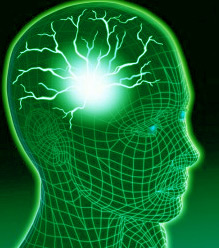
May years ago I wrote an essay titled On becoming a website. It was about my experience on teaching online and I suggested somewhat facetiously that in order to be a good teacher online I needed to actually “become” the course website! I started the essay by describing the idea of a cyborg:
A cyborg is a cybernetic organism — a hybrid of machine and organism, a creature of social reality as well as a creature of fiction. It has been argued that we are all cyborgs now (Haraway, 1991). Be it a pacemaker installed in our hearts or a pair of contact lenses in our eyes, technologies are now an integral part of our bodies and our consciousness. … Of course these socially (and increasingly biologically) embedded technologies often become transparent and, in some sense, so deeply intertwined with our existence that we don’t even realize they exist (Brooks, 2002).
Now this idea of a cyborg was somewhat of a rhetorical move, to generate interest in the topic I was writing about. So imagine my surprise when I read the following paragraph.
They gave her The Device when she was only 2 years old. It sent signals along the optic nerve that swiftly transported her brain to an alternate universe—a captivating other world. By the time she was 7 she would smuggle it into school and engage it secretly under her desk. By 15 the visions of The Device—a girl entering a ballroom, a man dying on the battlefield—seemed more real than her actual adolescent life. She would sit with it, motionless, oblivious to everything around her, for hours on end. Its addictive grip was so great that she often stayed up half the night, unable to put it down.
When she grew up, The Device dominated her house: no room was free from it, no activity, not even eating or defecating, was carried on without its aid. Even when she made love it was the images of The Device that filled her mind. Psychologists showed that she literally could not disengage from it—if The Device could reach the optic nerve, she would automatically and inescapably be in its grip. Neuroscientists demonstrated that large portions of her brain, parts that had once been devoted to understanding the real world, had been co-opted by The Device.
What a terrible terrible story. How and why did the parents give the device to a 2 year old! Is this kind of brain damage reversible?
So what IS this device? Well turns out it is a book!
Go back and read the passage again, making that switch! How does that feel?
I had written earlier about Douglas Adams’ rules about technology
- Anything that is in the world when you’re born is normal and ordinary and is just a natural part of the way the world works.
- Anything that’s invented between when you’re fifteen and thirty-five is new and exciting and revolutionary and you can probably get a career in it.
- Anything invented after you’re thirty-five is against the natural order of things. (p. 95).
It seems to me that this quote, which incidentally is taken from an article in Slate Magazine, reviewing Sherry Turkle’s latest book, captures the manner in which new technologies are often seen to go against “the natural order of things.”
Whether we like it or not, we are all cyborgs now.

The brain is amazing to study. Comparing it to a website reminds me of the ever-changing web. There is no way to fill the internet as our brain will never be full to capacity. Very interesting twist to the paragraphs you posted. We are all cyborgs.
Very solid post! Having studied distance learning in my graduate coursework, I can completely understanding “becoming the website” mentality. Once had an instructor tell us that we had to live and breathe the website content as an online instructor.
Funny how the ‘we are all cyborgs’ quote was from 1991. How much more is it the case now, 20 years later!
I love Adams 3 rules of technology, although it could be argued that numbers need to be adjusted. Thanks for the post!